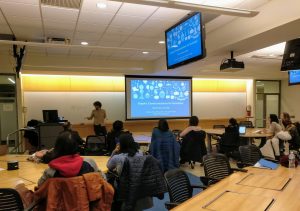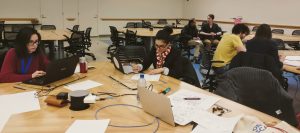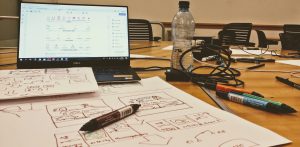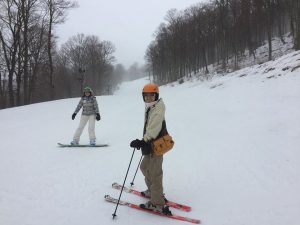Volunteer at Bridge to the Ph.D Program
When: May 21st, 22nd, 28th and 29th, 3pm-6pm
Bridge to the Ph.D. Program aims to enhance the participation of students from underrepresented groups in STEM graduate programs. They are looking for volunteers that are willing to help scholars for their upcoming symposium, by providing feedback on their presentations. If you are interested in attending one or more of these sessions, please complete this survey. If you want more information contact Kwame Osei-Sarfo.
Volunteer at March for Science
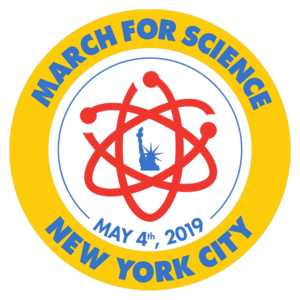
When: May 4th
Where: Pace University, 1 Pace Plaza, New York.
Organizer of the March for Science are looking for volunteers for different activities related with the March, which will take place next May 4th.
- Volunteers needed to engage in kid-friendly teach with interactive science booths and informational booths from all disciplines of STEM. The event will take place after the March ends at Pace University, 1 Pace Plaza. More info here. If you want to participate fill this out.
- NYC PostDoc Coalition will have a table and anyone interested in volunteer can help at the table presenting what postdocs are, what our role in science is, how folks can help our work (support the NIH) and how younger folks can become scientists. For any interest, contact Jason Gardiner Dumelie.
Volunteer at Super Saturday STEM Expo
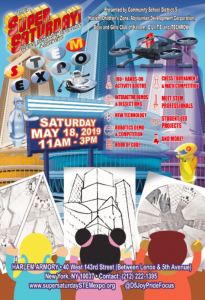
When: 18th May, 11am – 3pm
Where: Harlem Armory, 40 West 143rd Street
If you want to show how fun science can be, mentor young kids willing to know what is like to be a scientist and make science look as inclusive as possible volunteer for the Super Saturday STEM Expo taking place on May 18th. We are looking for people to perform hands-on activities for kids in the District of Harlem or just be there as scientists so kids can come and ask all their questions. If you are interested in participating, please contact Sandra Franco.
Volunteer at the Brooklyn Bridge Kite Festival
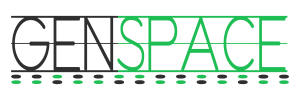
When: Saturday, May 11th
Where: 334 Furman St, Brooklyn, NY 11201 (Pier 5 Sports Field)
We’ll be doing a kite-flying activity, collecting microbes from the air! And also looking at microbes collected from kite-flying done the week before. You do not need to be a microbiology expert to help! We’re looking for volunteers to help set up, starting at 11am and then for the duration of the event. Please contact Beth Tuck from Genspace if you are available and interested. Click here for more information about the activity.
Volunteer at Family Science Night at MS 442 School of Innovation
When: Monday, May 20, 5:00-7:00pm
Where: 500 19th St, Brooklyn, NY 11215)
Volunteers will work with 6th-8th grade students and their parents on small scale, hands-on demos related to the volunteers’ work. The aims are to inspire curiosity and excitement about STEM topics and careers and to connect students and their parents with role models through in-person interactions. If you are interested, please contact Allan Powe.
Comedy training for Science Communication
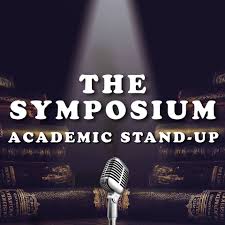
Are you a minority in STEM? Are you interested in learning how to use comedy to better engage audiences? Or do you just want to become a stronger, more strategic public speaker? Apply to be part of a national cohort of supportive, intersectional science communicators with The Symposium’s free pilot training program, a supported project of Science in Vivo. More info here.
To apply: https://airtable.com/shrMZq7Ch0FHAmwUH.
For more information contact Sandra Franco.




